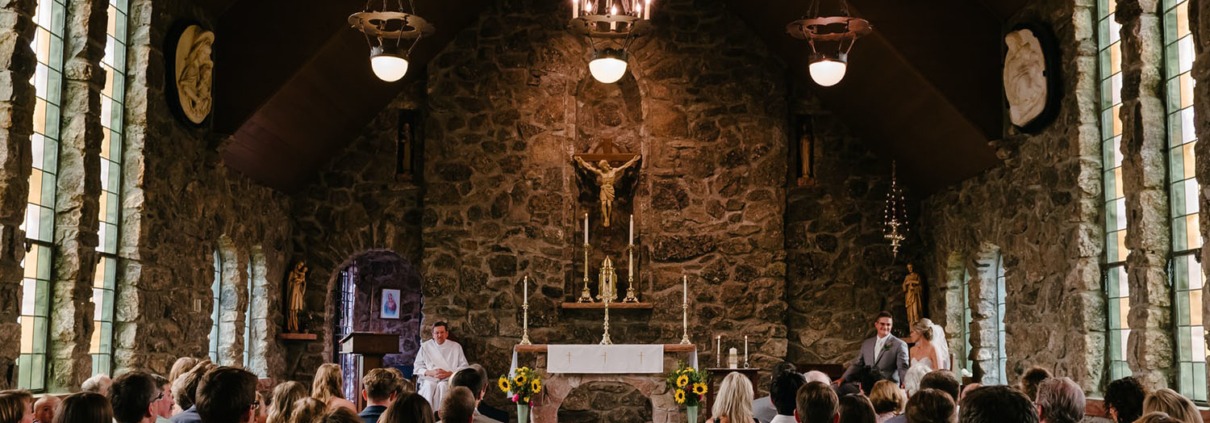Planning a Catholic Wedding Ceremony
Planning a wedding ceremony can be difficult at times, but always rewarding in the end. Planning a Catholic wedding ceremony has a few extra nuances that need to be taken into consideration.
Why a Catholic Wedding?
Getting married in the Catholic Church is exciting for several reasons.
Instead of having a carnal outlook on the ceremony, Catholic couples understand that marriage is a sacrament. It is a wholly moving and deeply emotional experience to recite your vows and make the public declaration of your love to your partner.
This public act of the deepest declaration of love and devotion becomes all the more profound when delivered at a Catholic wedding.
Not only is it the union of two individuals merely creating a legal contract with each other; it is the holy union of two individuals becoming one — with God at the center.
It is the sign of how Christ loves us — even to death, and the wedding ceremony is our response to His devotion with the most important people in our lives observing.
Planning a Catholic Wedding Ceremony… Practically Speaking
Most of the planning for a Catholic wedding is standard, relatively speaking. Choose your maid/matron of honor and the best man, the bridesmaids and the groomsmen, the flower girl and the ring bearer, the ushers… You get it.
Specifically speaking to a Catholic wedding, it is important to decide on the following:
- How many musicians and singers will you need?
- Organist, singers and other musicians all need to be taken into consideration.
- How many alter servers?
- What type of service — eucharist or non-eucharist?
- What processional hymn?
- What Old Testament reading? Who will be reading that?
- What New Testament reading? Who will be reading that?
- Our Father — spoken or sung?
- Who will be reading or singing the responsorial song?
- Will there be communion, and if so, what will the communion hymn be?
- What Gospel reading?
At a glance, this can all be very overwhelming. The best way to handle the load is to lean on your support group, delegate when you can delegate and always keep the line of communication wide open with your priest or deacon.
It’s also worth mentioning that you should always discuss your plans with your parish before making any commitments.
At the end of the day…
It is your ceremony. Make it profound for you and your future spouse. Your holy ceremony is a deep level of love that you as humans will be able experience at the innermost parts of our being, achievable with your faith in God at the center.
Your ceremony will be over faster than you can plan for, so don’t sweat the small stuff. It will be a beautiful ceremony no matter what. When things don’t go exactly according to plan — which does happen — just remember the most important reason you are having your ceremony in the first place.



